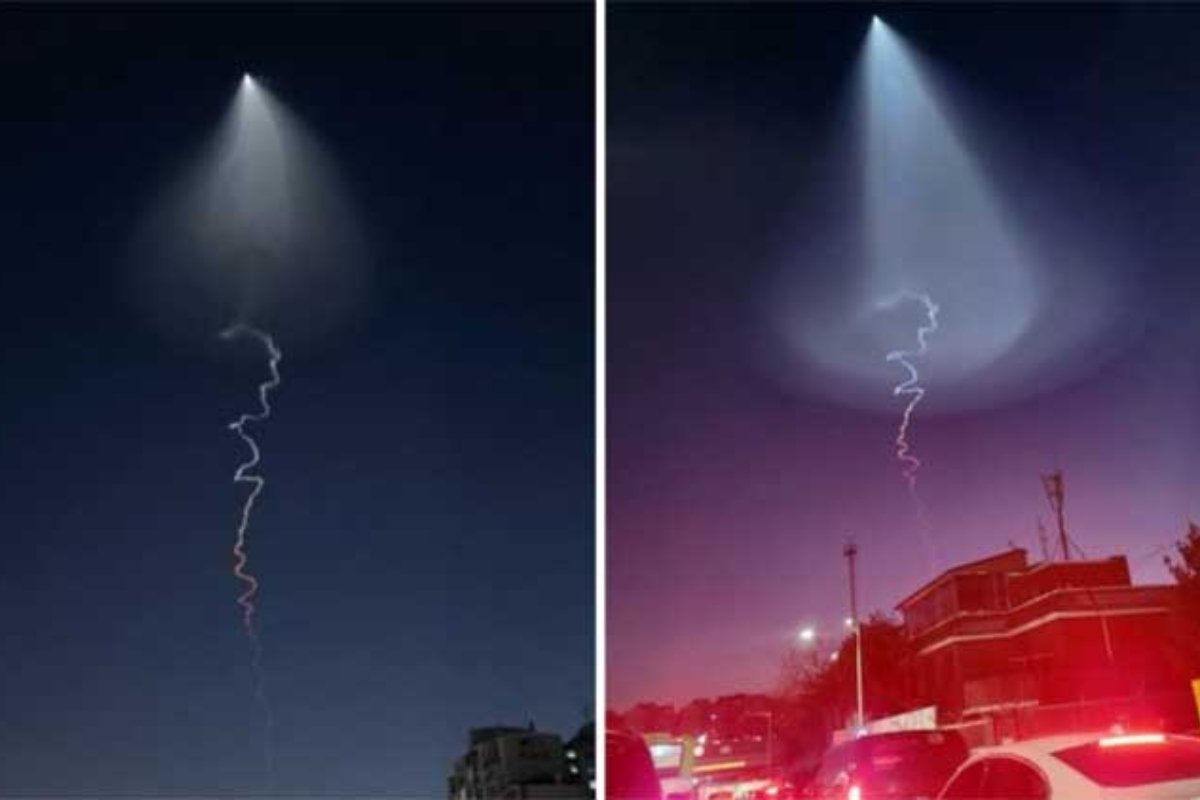- Unannounced South Korean rocket launch sparks UFO fear.
- Sighting or a North Korean missile launch.
- South Koreans claimed to have observed a flying object.
Unannounced South Korean rocket launch sparks UFO fear. Sighting or a North Korean missile launch.
According to the Defense Ministry, the rocket launch was part of its attempts to establish a space-based monitoring capability and strengthen its defence posture.
It said that because the launch included critical military security considerations, it did not tell the broader public in advance.
In sections of South Korea’s sky Friday evening, a twisted tendril of vapour in white-to-red ombre could be seen slithering behind a dazzling white light. In South Korea, social media and internet sites were flooded with posts from those who claimed to have seen a flying object, a rainbow-coloured vapour trail, or other odd lights. Some others also shared images and videos.
“What is this? Is this a UFO? I’m scared,” one Twitter user stated. Another claimed they were concerned about war since they felt it was a North Korean missile launch. Others suspected a drone light display or a supernatural occurrence.
[embedpost slug=”lord-bobby-do-this-at-1158-tonight-for-a-hopeful-star-of-2023/”]
According to local media, South Korean emergency services and police received hundreds of citizen reports of a weird flying object and mysterious lights around the country.
The South Korean rocket launch comes four days after the South accused the North of crossing the border with five drones for the first time in five years on Monday. South Korea’s military detected the drones but failed to shoot them down, raising questions about the country’s air defence network’s security. The military later apologised, which was unusual.
South Korean officials have stated that they intend to launch the country’s first spy satellite into orbit using a solid-fueled rocket. South Korea successfully launched its first solid-fuel rocket in March.
According to South Korean officials, solid-fuel rockets offer shorter launch times, simpler structures, and are less expensive to build and construct than liquid-fuel rockets.
According to the Defense Ministry, Friday’s launch was a follow-up test to the March launch.
North Korea is also striving for the development of its first military surveillance satellite and other high-tech weapons systems in response to what it perceives as US aggression. North Korea conducted a record number of missile tests earlier this year, according to experts, in an effort to perfect its nuclear weapons capability and increase its leverage in future negotiations with the US.





















